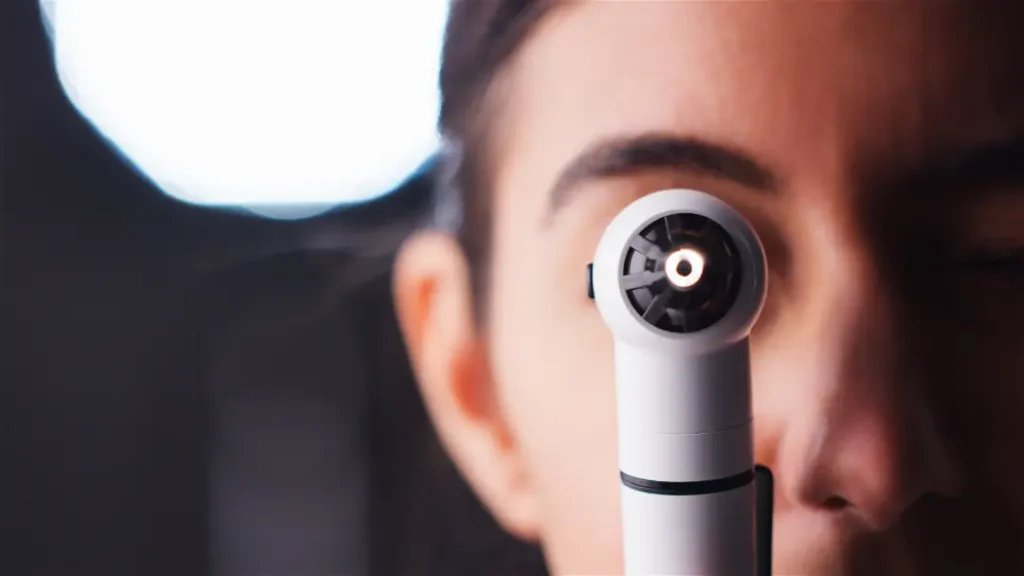Glaucoma encompasses a group of eye conditions characterized by damage to the optic nerve, often associated with elevated intraocular pressure (IOP). This damage can lead to irreversible vision loss if not identified and managed promptly. Notably, glaucoma often progresses silently, without noticeable symptoms in its early stages, underscoring the importance of regular eye examinations.
Our clinic employs cutting-edge technologies to ensure precise and early detection of glaucoma:
Treatment plans at ELZA are customized based on the type and severity of glaucoma, as well as individual patient factors:
First-line therapy often involves prescription eye drops aimed at lowering IOP by either reducing aqueous humor production or enhancing its outflow. Common classes include:
It’s crucial to adhere to the prescribed regimen, as consistent use is vital for efficacy.
Selective Laser Trabeculoplasty (SLT): Enhances the eye’s natural drainage system, effectively lowering IOP. SLT is a repeatable, minimally invasive procedure suitable for open-angle glaucoma.
Laser Peripheral Iridotomy (LPI): Creates a small opening in the iris to improve fluid flow in cases of angle-closure glaucoma.
Cyclophotocoagulation (CPC): Targets the ciliary body to reduce fluid production, used in advanced or refractory glaucoma cases.
When medications and laser treatments are insufficient, surgical options are considered:
Minimally Invasive Glaucoma Surgery (MIGS): Procedures like the implantation of iStent inject® or Hydrus® Microstent improve fluid outflow with a favorable safety profile and quicker recovery times. These are often performed in combination with cataract surgery.
Preserflo® MicroShunt: A newer, less invasive filtration device implanted under the conjunctiva to divert fluid and sustainably lower IOP with minimal disruption to ocular anatomy.
Trabeculectomy: Involves creating a new drainage pathway in the sclera to lower IOP, typically reserved for advanced or progressive glaucoma.
Aqueous Shunt Implants (e.g., Ahmed or Baerveldt valves): Flexible drainage devices implanted to manage complex or refractory cases of glaucoma.
Deep Sclerectomy and Canaloplasty: Non-penetrating procedures that enhance natural drainage pathways. These offer good pressure control with reduced risk of complications compared to full-thickness surgeries.
Angle-Closure Glaucoma: Requires prompt treatment to prevent vision loss. Management may include medications, LPI, or lens extraction.
Secondary Glaucoma: Treatment focuses on addressing the underlying cause, alongside standard glaucoma therapies.
Congenital Glaucoma: Early surgical intervention is often necessary to correct developmental anomalies affecting fluid drainage.

Prof. Kaweh Mansouri brings extensive experience and innovation in glaucoma management, including pioneering 24-hour IOP monitoring and co-developing the Eyemate® implantable sensor.
We develop individualized care plans, considering each patient's unique condition and lifestyle.
Our facility is equipped with the latest diagnostic and therapeutic tools, including high-resolution imaging and continuous pressure monitoring.
From diagnosis to postoperative care, all services are provided under one roof, ensuring continuity and convenience.
Schedule Your Consultation
Early detection and tailored treatment are key to preserving vision in glaucoma patients. Contact the ELZA Institute in Zurich to schedule a comprehensive evaluation with our glaucoma specialists.

Get in touch
During office hours.
Email us.
Make an appointment, and come to see us.
Thank you for writing a review on google.
Contact us here, we will get in touch with you.
Zoom online consultation for our international patients.
Contact us here, we will get in touch with you.
Contact us here, we will get in touch with you.
Stay informed & get the newsletter
You have successfully joined our subscriber list.
Newsletter abonnieren & informiert bleiben
Sie haben sich erfolgreich in unsere Abonnentenliste eingetragen.
Bitte bestätigen Sie Ihr Abonnement, indem Sie auf den Link in der E-Mail klicken, die wir Ihnen gerade geschickt haben.